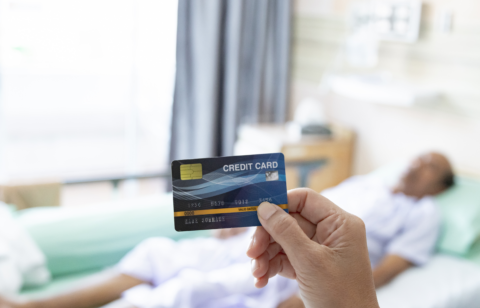When you owe a lot of money, you may worry about losing your wages or your home. You may think about filing for bankruptcy as a way out. But before filing for bankruptcy, you should know the serious cons that can come with it.
Bankruptcy may be necessary if you truly can’t afford basic living expenses like food and housing. Still, make sure to learn about it first. It could change your credit and your life for many years to come.
Know the Different Types
Chapter 7 and Chapter 13 are the two most common types of bankruptcy. With Chapter 7, many of your debts may be erased. You won’t have to pay them back through a repayment plan. Chapter 13 is different—it makes you repay your debts over three to five years.
How Chapter 7 Bankruptcy Works
To file for Chapter 7, you must give the court paperwork that lists out everything you own (your assets) and everything you owe (your debts and liabilities). You also have to give specifics on your income, your monthly living costs, and your bills. Before you can even file, you’re required to get credit counseling from an approved agency.
If you go through with Chapter 7, it will often erase many common types of debt, including credit card debt, personal loans, unpaid medical bills, old utility bills, bounced checks, and certain court judgments against you. But some significant debts are likely to remain.
How Chapter 13 Bankruptcy Works
Chapter 13 bankruptcy is different from Chapter 7. Instead of erasing many of your debts, it lets you repay them over time. You’ll work with the court to create a plan that shows how you’ll pay back some or all of what you owe.
The Major Cons of Filing for Bankruptcy
Chapter 7 bankruptcy may seem like an easy solution, but it comes with some very serious long-term effects. It could negatively impact many aspects of your life.
1. Not All Debts Will Go Away
Contrary to popular belief, a Chapter 7 bankruptcy will not get rid of all your debts. It will not discharge:
- Taxes and tax liens
- Student loan debt
- Alimony and child support
- Debts obtained through fraud, false pretenses, or false representation
2. It Stays on Your Credit Report for a Long Time
The second and biggest negative of a Chapter 7 bankruptcy is that it will stay on your credit report for 10 years. That’s a very long time, during which you may find it difficult to qualify for new credit at a decent interest rate—if you qualify at all. You may also find it impossible to get a new mortgage or receive approval to rent a house or apartment.
3. You May Lose Valuable Possessions
You will have to put the squash on all your credit cards, and you could lose some of your belongings. Property such as boats, travel trailers, and second homes may end up being sold to satisfy some of your debts.
4. Your Case Could Get Converted to Chapter 13
Finally, if the court finds that you have a certain amount of disposable income, they could decide to convert your case into Chapter 13. This means that instead of being free of most of your debts within four to six months, you would be required to pay them over a three-to-five-year period.
Why Debt Settlement May Be a Better Alternative
If every new bill sinks you deeper into debt, you should check out your options for debt relief first. It could help you pay off your debt faster and for less than you owe. Plus, it won’t affect your credit score for 10 long years.
Get Help Today
Many families rely on debt settlement with National Debt Relief to avoid the serious cons of filing for bankruptcy. Our debt specialists can negotiate settlements with your creditors that could save you thousands of dollars. We can help you become debt-free in as little as 24–48 months. This is a great option if you want to pay off your debt and avoid bankruptcy on your record. Why not get a free savings estimate today?
Frequently Asked Questions
The two most common types are Chapter 7 and Chapter 13. Chapter 7 may erase many debts. Chapter 13 makes you repay debts over time.
With Chapter 7, you give the court paperwork listing what you own and what you owe. You also give information about your income and expenses. You must get credit counseling before you file. Chapter 7 can erase many debts, but not all.
Chapter 13 lets you repay some or all of your debts over three to five years. You’ll work with the court to create a payment plan.
No. Some debts usually remain after bankruptcy. These can include:
- Taxes and tax liens
- Student loans
- Alimony and child support
- Debts from fraud
Yes. You may have to give up some of your belongings, like boats, trailers, or second homes. These may be sold to pay off some of your debts.
Yes. If the court thinks you have enough extra money, they might change your case to Chapter 13. This means you’ll have to repay your debts over three to five years instead of having them erased quickly.
Yes. Debt settlement may be a better choice for some people. It can help you pay off debt faster and for less than you owe.
If you’re struggling with debt, consider talking to a debt specialist. They can help you explore your options, like debt settlement, and find the best solution for your situation.







